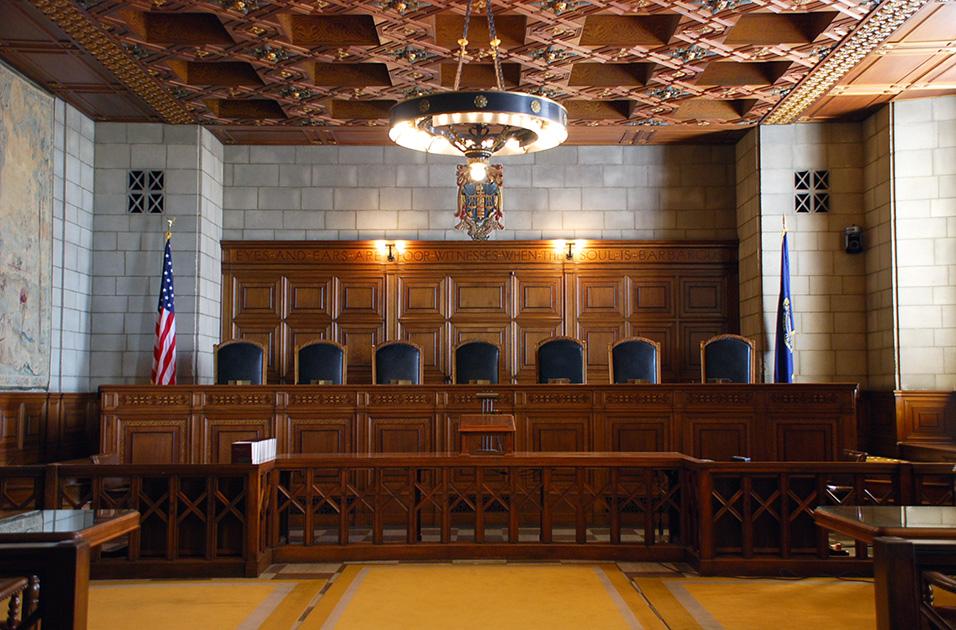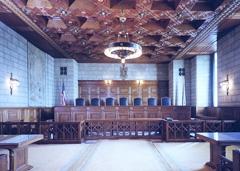The Nebraska Supreme Court is deliberating the fate of a controversial felon voting law that could have far-reaching implications for the 2024 election. As the state grapples with questions of democracy and justice, the outcome of this legal battle has the potential to sway the course of politics in Nebraska and beyond. USA TODAY examines the stakes at play and the possible ramifications of this critical decision.
Table of Contents
- Challenging the Nebraska Felon Voting Law: Key Points from the Supreme Court Hearing
- Implications for Voter Turnout and Political Landscape in the 2024 Election
- Potential Reforms and Recommendations to Ensure Electoral Equality in Nebraska
- Q&A
- To Wrap It Up
Challenging the Nebraska Felon Voting Law: Key Points from the Supreme Court Hearing
The recent Supreme Court hearing on the Nebraska felon voting law sparked intense debates among legal experts and political analysts. During the session, key points were raised that could potentially impact the 2024 election. One of the main arguments put forth was the question of whether denying felon voting rights violates the principle of equal protection under the law, as guaranteed by the Constitution.
Additionally, the justices deliberated on the potential ramifications of striking down the law, including the scope of its impact on future elections and the broader implications for voting rights across the country. The outcome of this landmark case could have far-reaching consequences, shaping the landscape of democracy in America for years to come. Stay tuned for more updates as the Supreme Court prepares to deliver its ruling on this pivotal issue.

Implications for Voter Turnout and Political Landscape in the 2024 Election
As the Nebraska Supreme Court deliberates on the state’s felon voting law, the decision could have significant implications for voter turnout and the political landscape in the upcoming 2024 election. The law in question currently prevents individuals with felony convictions from voting until they have completed their sentences, including probation and parole. Advocates argue that allowing these individuals to vote would increase voter turnout and result in a more representative political landscape.
If the Nebraska Supreme Court rules in favor of allowing felons to vote, it could potentially shift the balance of power in the state, as disenfranchised individuals regain their voting rights. This decision could also have broader implications for other states with similar laws, prompting them to reconsider their approach to felon voting rights. Ultimately, the outcome of this case could impact the 2024 election and shape the political landscape for years to come.

Potential Reforms and Recommendations to Ensure Electoral Equality in Nebraska
In light of the recent deliberations by the Nebraska Supreme Court on the felon voting law, there is a growing need for potential reforms and recommendations to ensure electoral equality in the state. One key area of focus should be on examining the impact of disenfranchisement laws on minority communities and developing strategies to address these disparities.
Moreover, policymakers should consider implementing the following reforms to promote electoral equality in Nebraska:
- Automatic Voter Registration: Implement a system of automatic voter registration to increase voter participation and ensure that all eligible citizens have the opportunity to cast their ballots.
- Restoration of Voting Rights for Felons: Consider restoring voting rights for individuals with felony convictions to promote inclusivity and fairness in the electoral process.
Q&A
Q: What is the current issue being considered by the Nebraska Supreme Court regarding felon voting law?
A: The Nebraska Supreme Court is currently weighing the legality of a law that prohibits felons from voting until they have completed their parole or probation.
Q: How could this decision affect the 2024 election?
A: If the Nebraska Supreme Court strikes down the current felon voting law, it could potentially allow thousands of felons to regain their voting rights in time for the 2024 election.
Q: What are the arguments for and against allowing felons to vote before completing their parole or probation?
A: Proponents of allowing felons to vote argue that it is a fundamental right and that disenfranchising them is unfair. Opponents argue that voting is a privilege that should only be granted to those who have completed their sentences.
Q: What is the historical context of felon voting laws in Nebraska?
A: Nebraska has a long history of restricting voting rights for felons, with the current law being enacted in 2005. However, there have been ongoing legal challenges to the law in recent years.
Q: When can we expect a decision from the Nebraska Supreme Court on this issue?
A: It is unclear when the Nebraska Supreme Court will issue a ruling on the felon voting law, but the decision could have significant implications for the 2024 election.
To Wrap It Up
the Nebraska Supreme Court’s decision on the felon voting law could have significant implications for the 2024 election. As the court deliberates on the constitutionality of the law, both supporters and opponents are closely monitoring the case. Stay tuned for updates on this developing story as it unfolds. Thank you for reading USA TODAY for the latest news and analysis on this issue.
